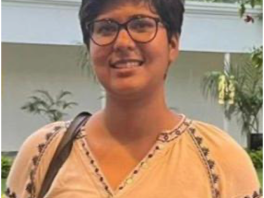In its second term (2024 - 2028), the chair has formalised the hosting of an annual visiting researcher for a period of one to three months. We also host some of our research collaborators for short periods. These researchers will be profiled below.
June - August 2025 - Dr Samuel Ugwumba

Samuel’s research focus is on copyright law and policy in developing countries, and particularly how a re-characterization and understanding of copyright as an institution of cultural governance within the political economy of information production can aid in examining the extent to which copyright pays equal attention—as well as the impediments preventing it from doing so—to economic and social considerations. His contribution to IP discourse, and specifically copyright, is that the critique and analysis of these regimes through a governance theory perspective.
Samuel holds a PhD from University College Cork where he was a Law and Business scholar, and analysed in his doctoral thesis the historical, normative, and policy landscape that render copyright impervious to social concerns. His thesis was supervised by Dr. Darius Whelan and externally examined by Professor Fiona Macmillan. He also holds an LLM from Columbia Law School where he was a Burton Memorial Fellow and editor for the Columbia Business Law Review, and Columbia Journal of Race and Law.
Samuel is also a real estate developer with a significant portfolio in affordable housing. He has also produced a couple of Nollywood movies and enjoys playing tennis.
April 2025 - Dr Yvonne Ndelle

In April we had the pleasure of hosting Dr. Yvonne Ndelle at the Chair during her one week visit to Cape Town. Dr. Ndelle is a Program Manager and Research Associate at the Open African Innovation Research Network (Open AIR) at the Centre for Law, Technology and Society at the University of Ottawa. The University of Cape Town houses the Southern African hub of the Open AIR network. Prof. Caroline Ncube and Prof. Tobias Schonwetter are both active members of the Open AIR steering committee. During her visit Dr. Ndelle spent time at the IP Chair as well as the iNtaka Centre for Law and Technology with Prof. Schonwetter and his team. Dr. Ndelle’s visit offered a valuable opportunity to exchange ideas and explore exciting ongoing and upcoming projects under the Open AIR banner. We’re grateful for her time and insights, and we look forward collaborating to on the impactful work that lies ahead.
February - April 2024 - Devanshi Saxena

Devanshi Saxena was at the chair as a Visiting Researcher from February to April 2024. She had previously had a month research stay at the Chair in August 2022 focussed on Decolonising GIs. For more about the first visit, read her post here.
Devanshi is a doctoral student at the University of Antwerp under the supervision of Prof Esther van Zimmeren. During the three month research affiliation with UCT in 2024 alongside her local supervisor/host Prof. Caroline Ncube, she studied the law and governance around the Rooibos Geographical Indication (GI). During this time, she has been conversing with actors at different levels of the supply chain of Rooibos such farmers, companies, government and civil society actors. Her focus was on producers at the base of the supply chain, such as farm workers and farmers, interlinking the law and governance of the GI with human rights and bio(cultural) diversity conservation. She also took this opportunity to connect with researchers working on similar issues in South Africa and exchanging ideas.